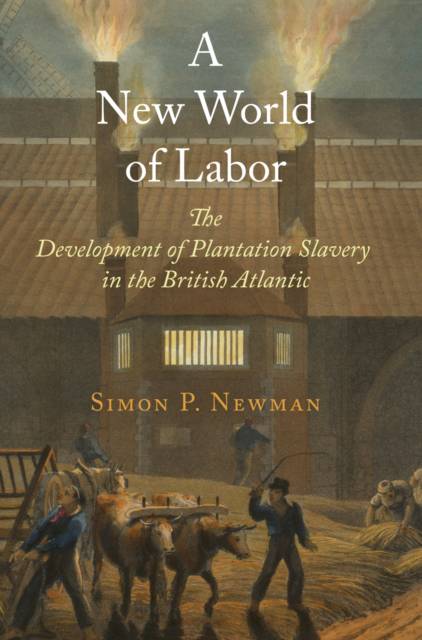
- Retrait gratuit dans votre magasin Club
- 7.000.000 titres dans notre catalogue
- Payer en toute sécurité
- Toujours un magasin près de chez vous
- Retrait gratuit dans votre magasin Club
- 7.000.0000 titres dans notre catalogue
- Payer en toute sécurité
- Toujours un magasin près de chez vous
129,95 €
+ 259 points
Format
Description
A New World of Labor The Development of Plantation Slavery in the British Atlantic Simon P. Newman "A New World of Labor is a landmark event in British Atlantic history. It is a major book by a major historian and will have an enormous impact on the way we conceptualize any number of topics, from the importance of integrating once again seventeenth-century British developments with developments in Africa and the Americas; to the necessity of seeing the Atlantic slave trade as considerably different in Africa and America; to reassertions of the centrality of labor in understanding New World social and cultural development."--Trevor Burnard, author of Mastery, Tyranny, and Desire: Thomas Thistlewood and His Slaves in the Anglo-Jamaican World "This wide-ranging study persuasively argues that flexible and adaptable forced labor systems existed in the British Atlantic, and that Barbados was a major cultural hearth, where planters invented a new and exportable form of bound labor. A New World of Labor is a powerful and impressive work."--Philip D. Morgan, Johns Hopkins University "A New World of Labor possesses a number of strengths to recommend it. Importantly, Newman contrasts the conditions for workers with indentures in England versus those in the Caribbean, pointing out how much more in keeping with slave labor the indentured worker was in Barbados. Also significant is the equal attention he gives to European and African workers in the Royal African Company. Indeed, in Newman's hands, the English are finally given the same sort of comprehensive treatment that other scholars have devoted to the Dutch and Danish employees on the gold coast."--John Thornton, author of Africa and Africans in the Formation of the Atlantic World, 1400-1680 The small and remote island of Barbados seems an unlikely location for the epochal change in labor that overwhelmed it and much of British America in the seventeenth and eighteenth centuries. However, by 1650 it had become the greatest wealth-producing area in the English-speaking world, the center of an exchange of people and goods between the British Isles, the Gold Coast of West Africa, and the New World. By the early seventeenth century, more than half a million enslaved men, women, and children had been transported to the island. In A New World of Labor, Simon P. Newman argues that this exchange stimulated an entirely new system of bound labor. Simon P. Newman is Sir Denis Brogan Professor of American History at the University of Glasgow and author of Parades and the Politics of the Street: Festive Culture in the Early American Republic and Embodied History: The Lives of the Poor in Early Philadelphia, both available from the University of Pennsylvania Press. The Early Modern Americas 2013 352 pages 6 x 9 15 illus. ISBN 978-0-8122-4519-6 Cloth $55.00s £36.00 ISBN 978-0-8122-0831-3 Ebook $55.00s £36.00 World Rights American History, Latin American/Caribbean Studies Short copy: A New World of Labor connects developments in seventeenth-century Britain with the British experience of slavery on the West African coast and with the initial development of African chattel slavery in Barbados, whose labor system played a foundational role in defining how plantation slavery developed throughout British America.
Spécifications
Parties prenantes
- Auteur(s) :
- Editeur:
Contenu
- Nombre de pages :
- 336
- Langue:
- Anglais
- Collection :
Caractéristiques
- EAN:
- 9780812245196
- Date de parution :
- 14-06-13
- Format:
- Livre relié
- Format numérique:
- Ongenaaid / garenloos gebonden
- Dimensions :
- 163 mm x 231 mm
- Poids :
- 680 g

Les avis
Nous publions uniquement les avis qui respectent les conditions requises. Consultez nos conditions pour les avis.






